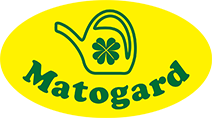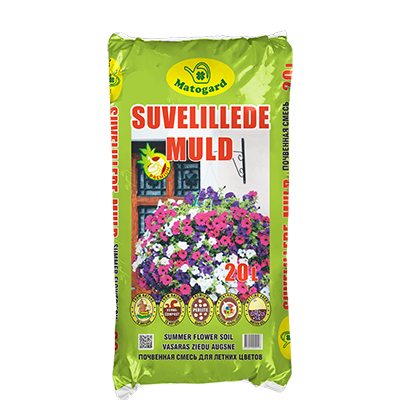SUMMER FLOWER SOIL 20L

BIO GREENHOUSE SOIL WITH COMPOST 60 L
7. April 2022A particular soil that is ready to be used for growing flowers in different pots, boxes, hanging vases and vessels.
Usage:
- Plants growing in suspended flowerpots and balcony boxes;
- Container plants;
- Terrace plants;
- Cemetery plants;
- Greenhouse substrate;
- Substrate for winter gardens.
Composition:
- Peat – the primary component that is neutralized with dolomite powder and mixed with mineral fertilizer.
- Horse manure compost – floral nutritional compost biotechnologically made of horse manure. Ensures a suitable microbiological mix for plants.
- Biohumus (vermicompost) – manure worm compost. Adds vitamins, growth regulators, amino acids and a beneficial microflora to the soil.
- Perlite – these ingredients bind water and stop the soil from drying.
- Humine powder – accelerates the development of strong roots and improves the microflora of the soil. It helps plants to assimilate nutrients. Humins relieve the growing stress of a plant due to unfavorable growing conditions.
- Controlled-release fertilizer – fertilizers with a long-term effect, which ensure the supply of nutrients to plants during the entire growth period, up to 6 months.
- Water gel – water-binding pellets.
- Wetting agent – ensures fast absorption of water in dry soil and uniform distribution.
Recommendations:
- Use vessels with sufficient size. The amount of soil should be 1.5–2 l per plant; for vibrant summer flowers, use 3 l of soil per plant.
- To drain excess water, put a 2–5 cm drainage layer (light gravel) to the bottom of the vessel. Then apply a layer of soil.
- After planting and compressing the soil, leave 2 cm of free space to the edge of the vessel to facilitate watering.
- To achieve plentiful blossoms, provide a sufficient amount of water for the plant in a warm summer.
- Matogard Summer Flower Soil includes fertilizers for the whole growing period. If necessary, provide additional fertilizers for a growing period.



